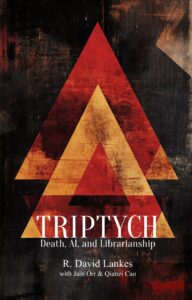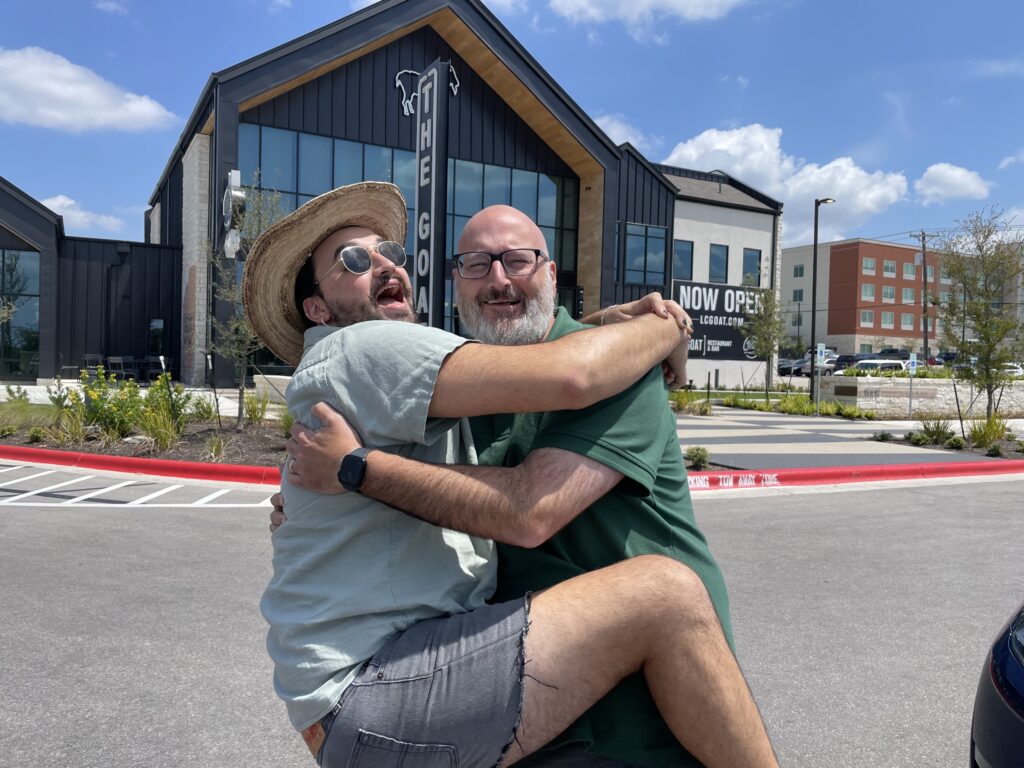FOR IMMEDIATE RELEASE
June 27, 2025
R. David Lankes Releases New Book on Libraries, AI, and Democracy
Triptych: Death, AI, and Librarianship reframes the future of libraries of all types as a lifeline for community and connection.
Philadelphia, PA — R. David Lankes, in association with Library Journal, proudly announces the release of Triptych: Death, AI, and Librarianship—a daring, deeply personal, and visionary work that confronts the most urgent challenges facing libraries today.
In an era marked by deep social divides, technological disruption, and growing isolation, Triptych offers a transformative vision: that libraries can—and must—do more than inform; they can save lives. Joined by Jain Orr and Qianzi Cao, Lankes presents three bold lectures that challenge librarians to embrace their role as catalysts for community, justice, and human resilience.
“Triptych is a manifesto,” says Lankes. “It’s a call for librarians to resist despair, champion equity, and guide communities through the ethical complexities of artificial intelligence and rising authoritarianism—not by standing apart, but by standing together.”
Library Journal will feature a series of exclusive excerpts, author interviews, and companion essays on its digital platforms. In addition, LJ will partner with Lankes to host webinars throughout the coming year exploring each of the book’s major themes—from AI ethics to joy as resistance and the emergence of “feral librarians.”
Inside Triptych, readers will find:
- A radical redefinition of librarianship rooted in mission, empathy, and action
- A critical look at AI’s impact on trust, literacy, and community cohesion
- A passionate defense of libraries as democratic, transformative spaces
- A post-industrial vision for libraries centered on agency, adaptability, and radical inclusion
“Dr. Lankes’ reputation as a provocative and compassionate library thinker is reinforced in this latest work,” said Library Journal Editor-in-Chief Hallie Rich. “Triptych presents a vision for librarianship grounded in the issues libraries grapple with today, and we’re excited to help bring these ideas into the center of the profession’s conversation.”
Triptych: Death, AI, and Librarianship is available now through Amazon, and soon through major booksellers.
The first of a series of excerpts from Triptych: Death, AI, and Librarianship, can be found on the Library Journal website.
Media Contact:
rdlankes@utexas.edu
Author Website: https://DavidLankes.org
Library Journal Website: https://www.libraryjournal.com/
About Library Journal:
Founded in 1876, Library Journal is the leading voice of the library community, providing trusted reporting, reviews, and insights to help libraries and librarians thrive in a changing world.
About R. David Lankes:
R. David Lankes is the Virginia & Charles Bowden Professor of Librarianship at the University of Texas at Austin and a leading advocate for community librarianship. His work explores how libraries can empower communities to confront real-world challenges with knowledge, empathy, and hope.


